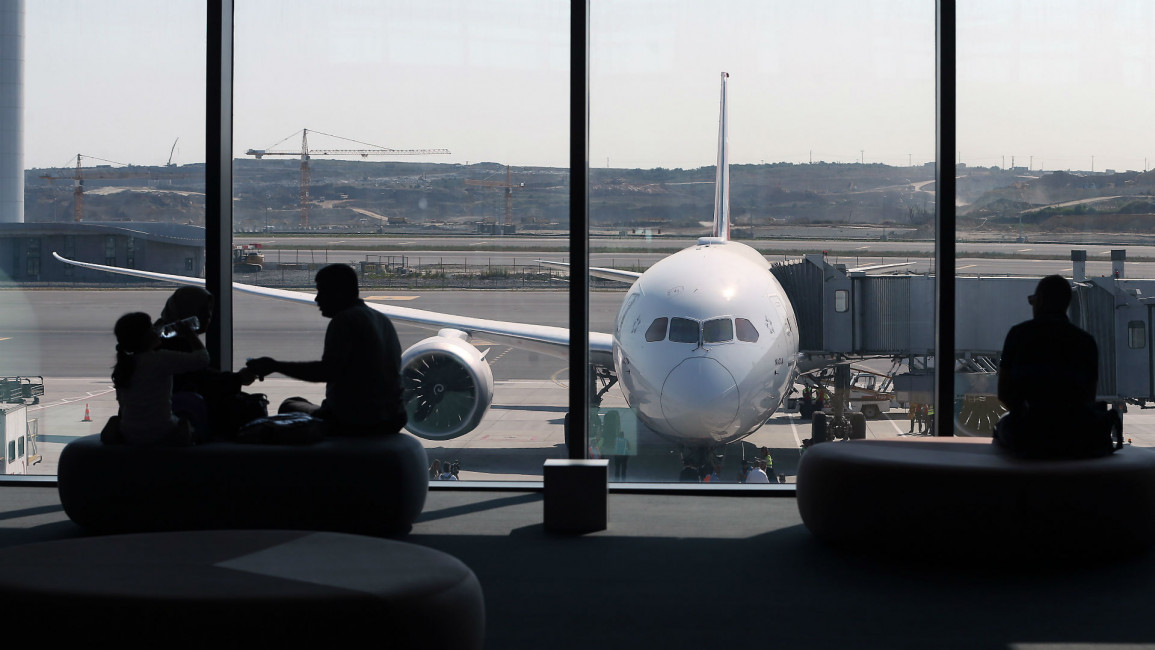Palestinian-Syrian refugee stranded in Istanbul airport faces imminent deportation to Syria
Amnesty International has drawn attention to the case of a Palestinian refugee from Syria who is stranded in an Istanbul Airport transit zone, calling on Turkish authorities to grant him access to Turkey.
Mohammed Ajlani Younis has been stuck in Istanbul airport, at risk of deportation, for more than six weeks.
"As thousands of passengers stream through Istanbul's new airport terminal, all Mohamed Ajlani Younes can do is watch and wait," said Adriana Tidona, Migration Researcher at Amnesty International.
"He is at risk of imminent deportation to Lebanon which would put him in danger of being sent to Syria, where he would be at risk of serious human rights violations."
Younis has been surviving on cheese sandwiches, water and fruit juice and has not had access to sleep or bathing facilities.
There have been two attempts to deport him to Lebanon as his asylum application in Turkey is pending.
Younis fled Syria to Lebanon in 2012, and was living in Shatila refugee camp with his wife and two children.
|
He was stopped in Istanbul airport when travelling to Turkey from Lebanon in May and accused of travelling with a fake passport.
Two days later he applied for asylum in Turkey, citing his fear about returning to Lebanon.
"Asylum seekers should not be penalised for illegal entry in a country where they seek protection, as long as they present themselves without delay to the authorities showing good cause for it," the rights group wrote.
Syrian refugees increasingly face hostility in Lebanon. Amnesty International belives that the "coercive environment created by the Lebanese authorities is forcing them to return to Syria", where they would be at risk of rights violations.
Follow us on Twitter: @The_NewArab



